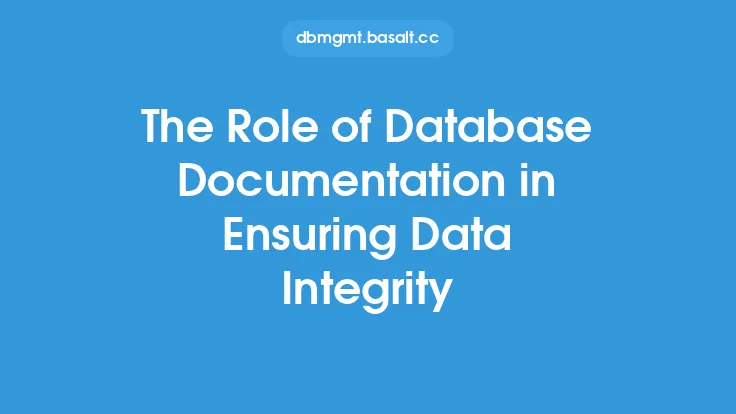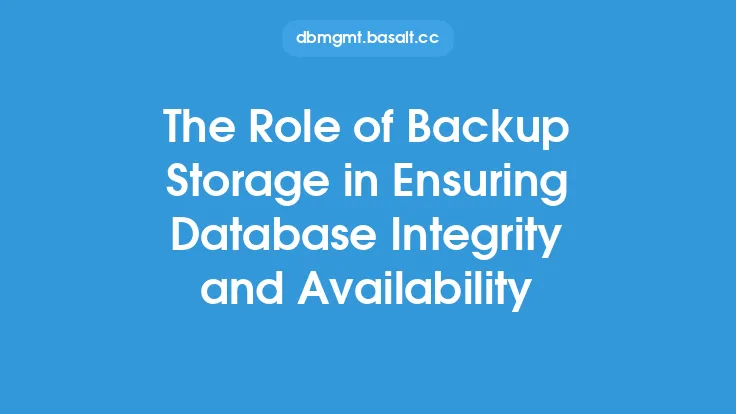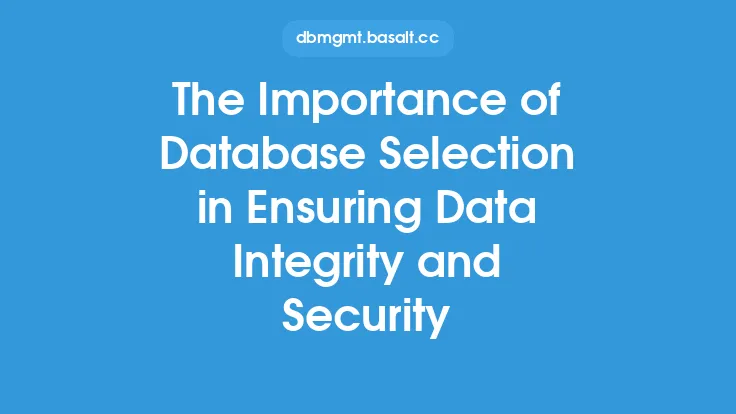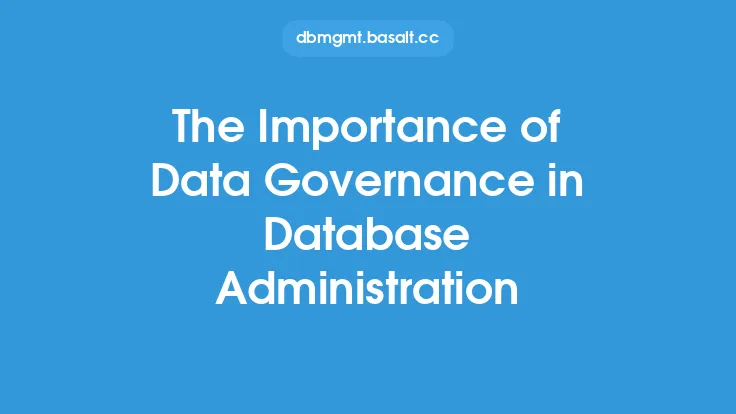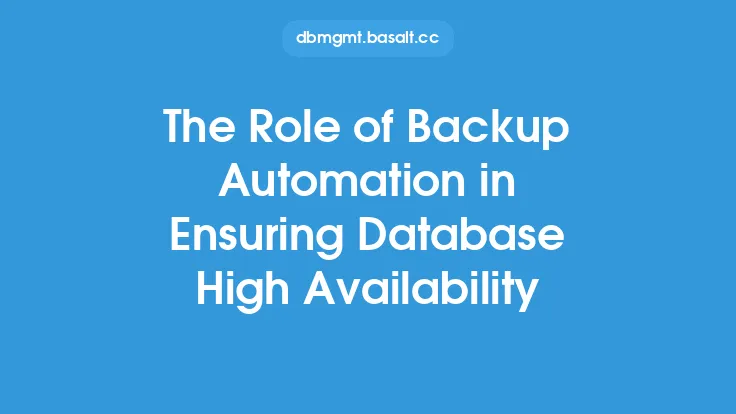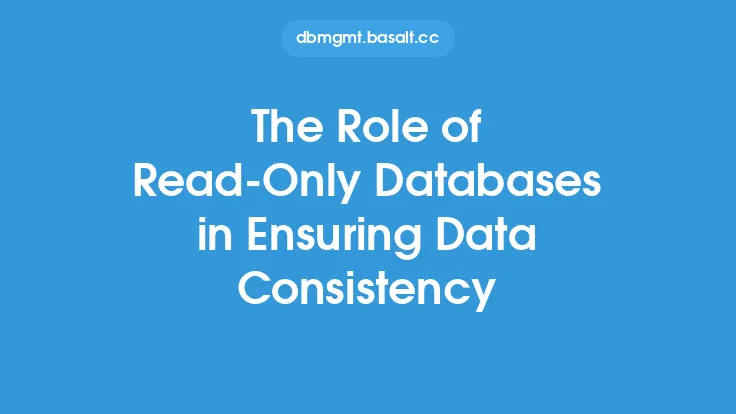Database governance is a critical aspect of database administration that ensures the integrity, security, and quality of data within an organization. It involves a set of policies, procedures, and standards that govern the management of data across the enterprise. Effective database governance is essential to ensure that data is accurate, reliable, and accessible to authorized personnel. In this article, we will delve into the role of database governance in ensuring data integrity and explore the various aspects of database governance that contribute to this goal.
Introduction to Database Governance
Database governance is a holistic approach to managing data across the organization. It involves establishing policies, procedures, and standards for data management, as well as ensuring compliance with regulatory requirements and industry standards. Database governance encompasses various aspects, including data security, data quality, data architecture, and data storage. The primary goal of database governance is to ensure that data is managed in a way that supports the organization's business objectives and ensures the integrity, confidentiality, and availability of data.
Data Integrity and Its Importance
Data integrity refers to the accuracy, completeness, and consistency of data. It is essential to ensure that data is accurate and reliable, as incorrect or incomplete data can have serious consequences, including financial losses, reputational damage, and regulatory non-compliance. Data integrity is critical in various industries, such as finance, healthcare, and e-commerce, where data is used to make critical business decisions. Database governance plays a vital role in ensuring data integrity by establishing policies and procedures for data management, data validation, and data quality control.
Database Governance Framework
A database governance framework is a structured approach to managing data across the organization. It involves establishing a set of policies, procedures, and standards for data management, as well as defining roles and responsibilities for data governance. A typical database governance framework consists of several components, including data governance policies, data quality standards, data security policies, and data architecture standards. The framework should be designed to ensure that data is managed in a way that supports the organization's business objectives and ensures the integrity, confidentiality, and availability of data.
Data Governance Policies
Data governance policies are a critical component of database governance. They provide a framework for managing data across the organization and ensure that data is handled in a consistent and controlled manner. Data governance policies should cover various aspects, including data security, data quality, data retention, and data disposal. The policies should be designed to ensure that data is accurate, complete, and consistent, and that it is accessible to authorized personnel. Data governance policies should also be reviewed and updated regularly to ensure that they remain relevant and effective.
Data Quality Control
Data quality control is an essential aspect of database governance. It involves ensuring that data is accurate, complete, and consistent, and that it meets the required standards. Data quality control involves various activities, including data validation, data cleansing, and data normalization. Data validation involves checking data for accuracy and completeness, while data cleansing involves correcting errors and inconsistencies in the data. Data normalization involves transforming data into a standard format to ensure consistency and accuracy.
Data Security and Access Control
Data security and access control are critical components of database governance. They involve ensuring that data is protected from unauthorized access, use, or disclosure. Data security policies should cover various aspects, including access control, authentication, and encryption. Access control involves restricting access to data to authorized personnel, while authentication involves verifying the identity of users. Encryption involves protecting data from unauthorized access by converting it into a coded format.
Database Auditing and Compliance
Database auditing and compliance are essential aspects of database governance. They involve ensuring that data is managed in compliance with regulatory requirements and industry standards. Database auditing involves monitoring and analyzing database activities to ensure that they are compliant with established policies and procedures. Compliance involves ensuring that data is managed in accordance with regulatory requirements, such as data protection laws and industry standards.
Best Practices for Database Governance
Effective database governance requires a structured approach to managing data across the organization. Best practices for database governance include establishing a database governance framework, defining data governance policies, implementing data quality control measures, and ensuring data security and access control. It is also essential to monitor and analyze database activities to ensure compliance with established policies and procedures. Additionally, database governance should be integrated into the organization's overall governance framework to ensure that data is managed in a way that supports the organization's business objectives.
Conclusion
In conclusion, database governance plays a critical role in ensuring data integrity. It involves establishing policies, procedures, and standards for data management, as well as ensuring compliance with regulatory requirements and industry standards. Effective database governance requires a structured approach to managing data across the organization, including establishing a database governance framework, defining data governance policies, implementing data quality control measures, and ensuring data security and access control. By following best practices for database governance, organizations can ensure that their data is accurate, reliable, and accessible to authorized personnel, which is essential for making informed business decisions and achieving business success.
